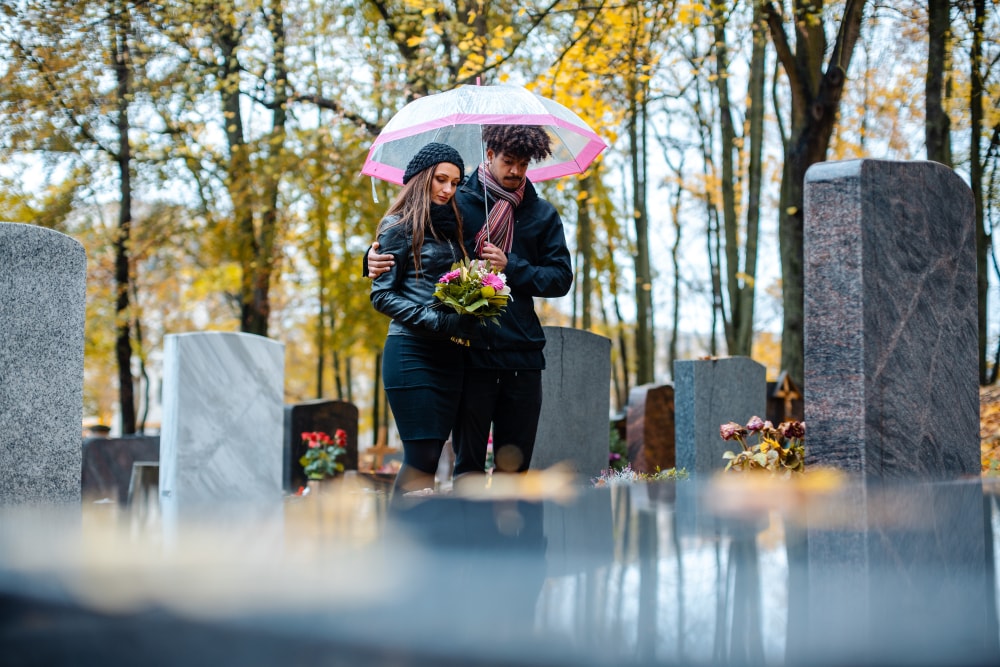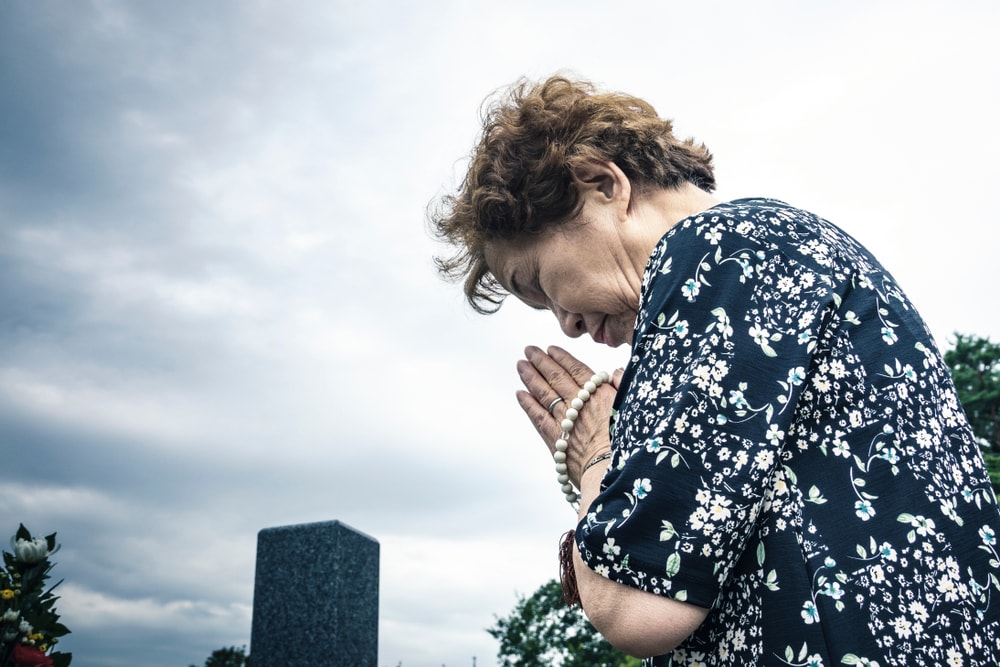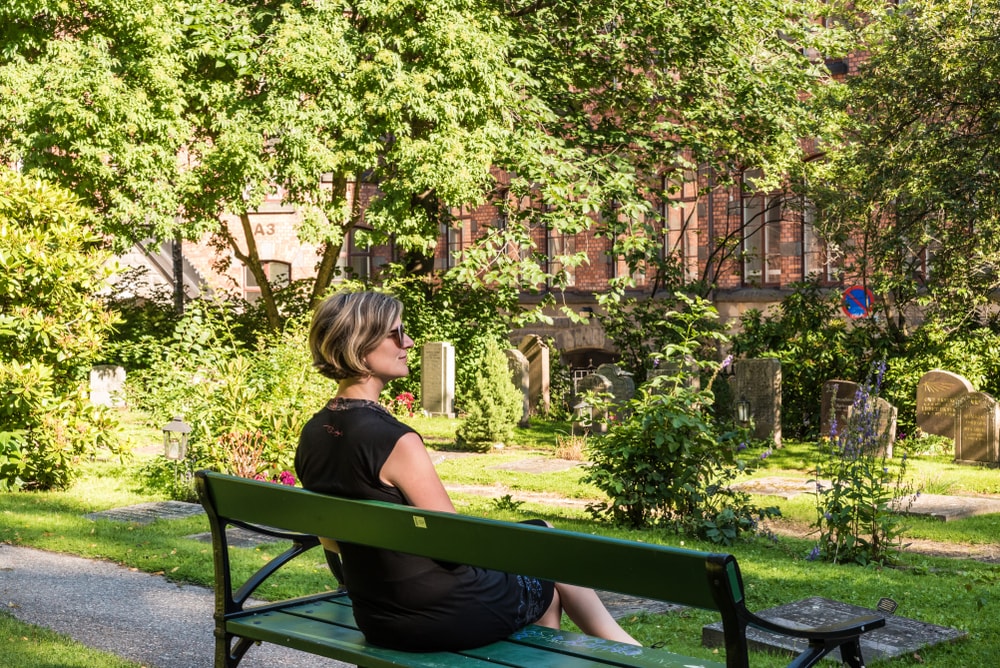Losing a loved one can cause our entire world to start spinning. For some of us, the spinning doesn’t completely stop for a while. One loss may take a year to process while another loss may take ten years before the person feels ready to move forward. Both of these scenarios are normal – they are just different. As we deal with our whirling emotions, we need a way to bring ourselves back to reality. In other words, we need something that will ground us and give us peace at the same time. One way we can accomplish this is by visiting a loved one’s final resting place.
4 Ways Visiting a Loved One’s Grave Can Help You Grieve
Dr. Alan Wolfelt, respected grief expert, author, and counselor, says, “I have learned that we cannot go around the pain of our grief. Instead, we must learn to embrace and express it. This is hard but absolutely necessary work.” So, how does visiting the graveside help us do the work of grief?
Provides a place of connection
For some, a loved one’s final resting place is a cemetery. For others, particularly those whose loved one was cremated, a final resting place may be a body of water, a park, or some other special place. No matter where that place may be, going there may help you feel more connected to the person you love. Knowing that you are where they are, or you are in a place special to them, brings a sense of connectedness and closeness that may be less achievable in other places.
Provides a time for solitude, contemplation, or prayer
After losing a loved one, you may be feeling a lot of emotions. Sometimes, it’s beneficial to sit in quiet and take time to think or to pray. If you are someone who journals, take a notebook to the cemetery with you and simply write out what you’re thinking and feeling. Being so close to your loved one may help you sincerely express what’s in your heart and on your mind.
Provides an opportunity to talk to your loved one
What wouldn’t we give for just one more conversation with a loved one? While you may not hear their answers, you can still talk to a lost loved one. You’ve seen it in movies and on TV – it’s a real thing. People want to feel a sense of connection. They want to talk to the person they’ve lost. What do they do? They go to the cemetery and have the conversation they need to have. It’s normal, natural, and a meaningful way to grieve. So, if you want to have that conversation, go do it. You’ll feel better.
Provides a comforting tradition
For many people, visiting a loved one’s grave becomes part of a comforting tradition. They bring flowers or mementoes on special days, like birthdays or holidays. They spend time talking to their loved one, updating them on the grandkids, the new house, or whatever else they want. At first, the tradition may be sad, but over time, visiting the grave becomes a joyful and peace-filled ritual that brings comfort and keeps a loved one’s memory alive and strong.
What Can You Do at the Graveside?
You can tailor your visit to your own and your family’s needs. There’s really no wrong way to go about this. However, to give you a start, here are a few thoughts to consider.
- Bring a bouquet of flowers to leave
- Place a favorite photo at the grave
- Decorate the grave (i.e. for Christmas or a birthday)
- Walk and/or kneel and pray or meditate
- Talk to your loved one, sharing your plans for the future or reflecting on the past
- If you came with family members or friends, share memories
- If there’s a bench nearby, sit down and eat a picnic lunch or simply take in your surroundings
A Few Etiquette Tips
No matter what you decide to do, make sure to act respectfully at the cemetery. A few tips:
- Familiarize yourself with any posted cemetery rules
- Leash your pets (and clean up after them)
- Drive slowly and be alert
- Respect the graves of others
- Be respectful of funeral services and other mourners
- Clean up after yourself and others
As you grieve the loss of a loved one, consider the power of connection and reflection a visit to your loved one’s final resting place can bring. If nothing else, give it a try at least once to see if it works for you. If it doesn’t, it doesn’t, but at least you’ll know. As you look for what’s right for you on your grief journey, may you find peace and comfort as you grieve your loved one and find a way to move forward.








